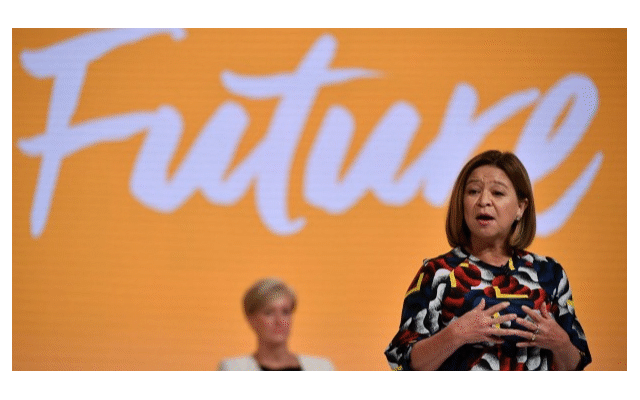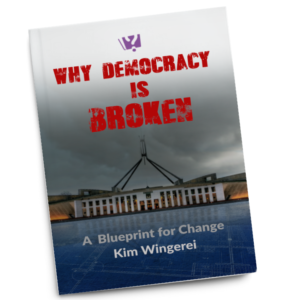It’s not just politicians that need to be held accountable to a set of ethical standards. Media ethics may be better defined by journalist’s code of conduct, but too often it is being sacrificed on the altar of a catchy headline or not letting the truth get in the way of a good story.
One of the few programs I watch every week is ABC’s Media Watch. I like the short and sharp format and the acerbic wit of Paul Barry. It is a lone voice in a media landscape dominated by the entertainment giants on one side, and the more fragmented plethora of news and commentary on the other.
 I never bother with the “news” as presented by the commercial channels, but occasionally relax with clips from my favourite comedy show, Sky News. Their satire is second to none, made even better because most of it appears to be unscripted. Very impressive. Some terrific guest appearances, too. My favourite is the woman impersonating the Fairy Godmother from Shrek.
I never bother with the “news” as presented by the commercial channels, but occasionally relax with clips from my favourite comedy show, Sky News. Their satire is second to none, made even better because most of it appears to be unscripted. Very impressive. Some terrific guest appearances, too. My favourite is the woman impersonating the Fairy Godmother from Shrek.
Anyway, I digress.
Media Watch serves an important purpose. Calling out the mainstream media for being loose with the truth, exaggerating stories while ignoring others, lack of fact checking and undeclared bias. Nobody, including the ABC itself, is shielded from the Media Watch culpability torch.
But what Media Watch doesn’t do, and not enough political commentators do, is reflect on the role the media plays in the malaise that is our current political climate.
The comedians at Sky have a running gag about lefties – getting a bit old in the tooth, that one. And on the other side of the divide everybody loves to hate Rupert Murdoch, closely followed by the other giants of the mainstream media. Including Fairfax, once a great media company, now a subsidiary of an entertainment and sport broadcaster – Channel Nine.
 And scattered across that wide chasm of diverse opinions are the commentators, twitterati and other social media warriors, bots and trolls. All of us passing comment on the daily shenanigans of public life, and most of all on our politicians and their particular approach to the public debate.
And scattered across that wide chasm of diverse opinions are the commentators, twitterati and other social media warriors, bots and trolls. All of us passing comment on the daily shenanigans of public life, and most of all on our politicians and their particular approach to the public debate.
Over the last few years our Parliament has become more of a hotbed of unbridled bias, intolerance and partisanship than ever before. And the media – particularly the mainstream media – lap it up with daily relish, salivate over the prospects of yet another stoush and another sound-bite to put in a headline.
The inevitable result of the relentless spotlight on the debate itself rather than what is being debated is that the focus is all on the protagonists. It is all about the personalities. Canny politicians play on it and the media thrive on it.
So when Temporary Prime Minister Scott Morrison angrily shouts at his counterpart across the aisle that the fight is now getting “intimate” – it’s you and me, baby – the press gallery loves it, it is tweeted and blazed onto the top of their home-pages within minutes.
The media will claim they merely report what they hear and see, and they’d be right. If one forgets that in a functioning democracy the press is “the fourth pillar”. To quote French political schemer in chief, Charles Maurice de Talleyrand: “Without freedom of the press, there can be no representative government.”
The media have a role not merely to report on what it sees. It also has a responsibility to call out the impact, to question unethical behaviour, to demand answers and to hold politicians accountable for their actions – not just in rhetoric but also in deed.
But mainstream media is lazy. To report on politicians brawling is easy. To hold them to account for promises made is much harder. Good journalism is asking hard questions and not taking evasion for an answer. Good commentary is deliberating not just on the politics of an issue but focus on the ideas, policies and possible solutions.
Good journalism (and commentary) is doing the research, asking questions, declaring bias if one exists, not to pretend it doesn’t – lo-and-behold, even admitting when one is wrong! Good journalism is reporting on what you see and what you observe, without fear or favour.
Good journalism is being prepared to hold the powerful to account, to question the status quo, to seek truth when withheld, concealed or twisted.
Lazy journalism is to report on personalities and street-fights. Good journalism is to contribute to the understanding of issues and why the fighting started.
Lazy journalism and commentary solely focused on the messengers instead of the message enables our politicians to behave the way they do.
The MEAA Journalist Code of Ethics states:
“Respect for truth and the public’s right to information are fundamental principles of journalism. Journalists search, disclose, record, question, entertain, comment and remember. They inform citizens and animate democracy. They scrutinise power, but also exercise it, and should be responsible and accountable.”
All of us who write should reflect on that and the 12 ethical rules outlined on the MEAA ethics “poster”.
The MEAA and Media Watch stand on the barricades of good journalism. But we, the people, must demand better not just from our politicians, but for the media to heed their code of conduct.





